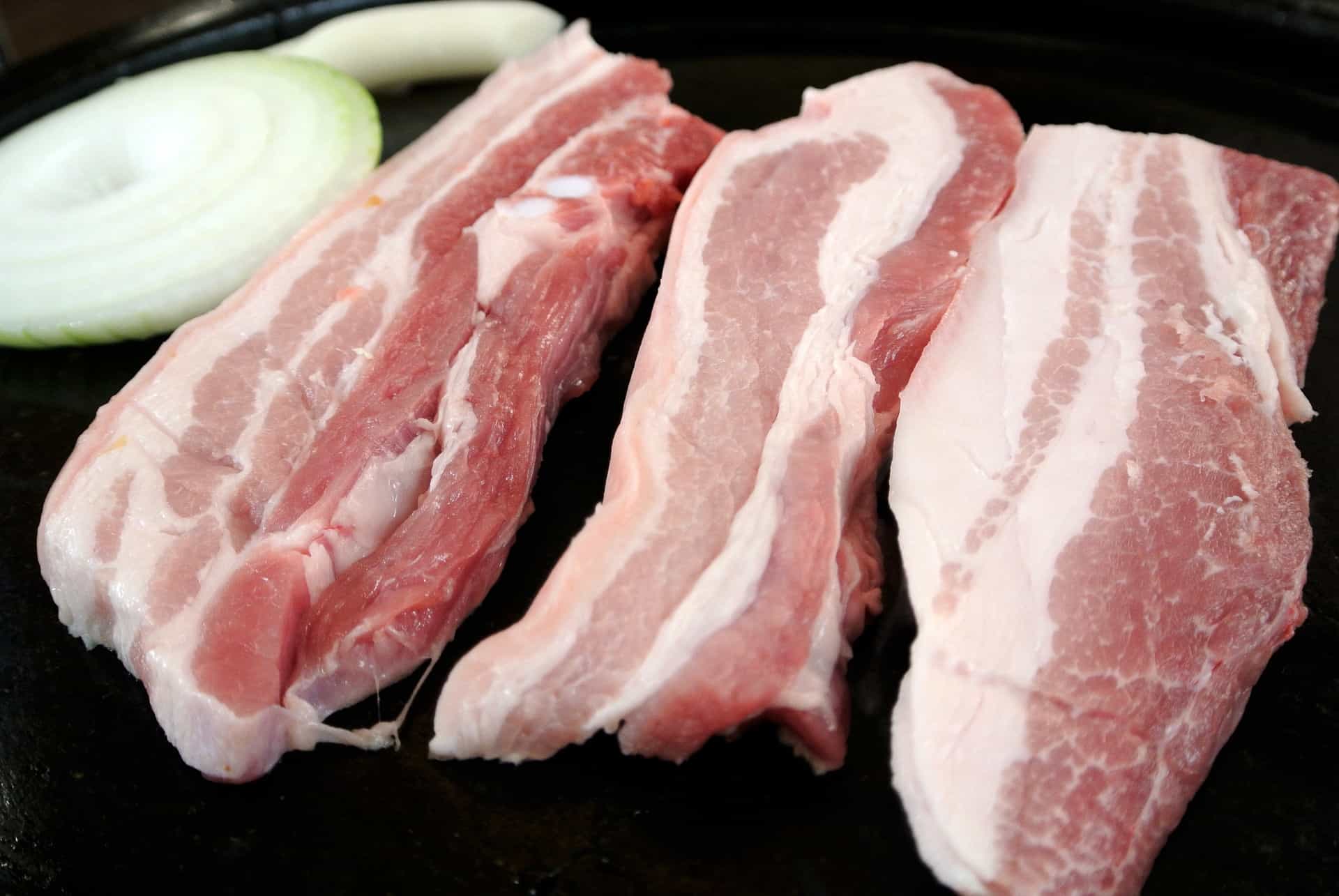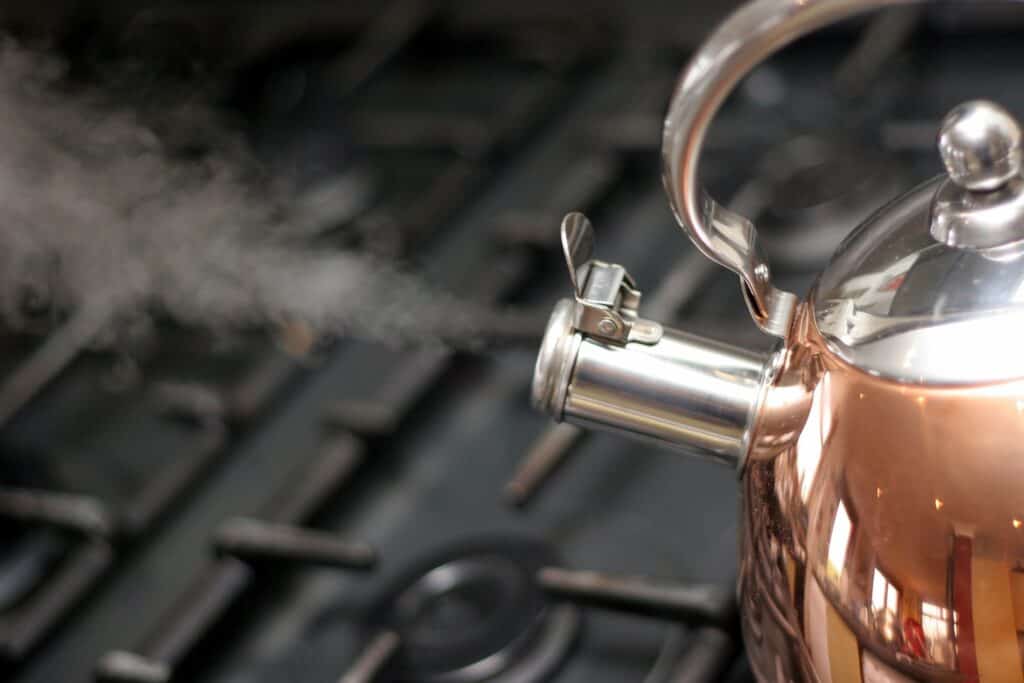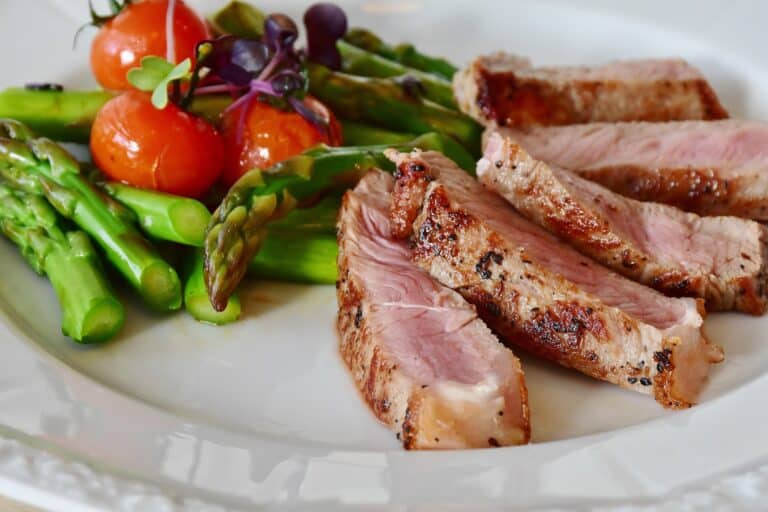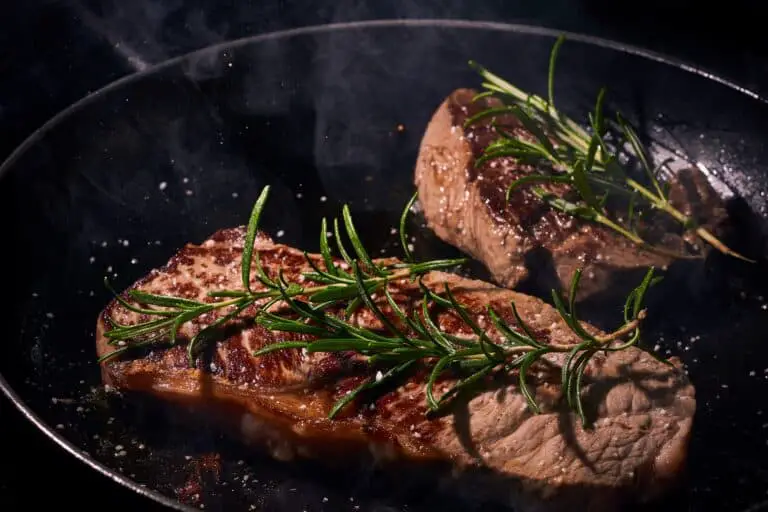Can You Boil Bacon? If Yes, Then How?

What is bécon in food?
“Beacon” is a transliteration of the English word bacon. There are many kinds of type 1 bacon, all made from the same cut of pork belly. The specific kinds vary by thickness, taste, and how they are prepared.
Some varieties include:
1) Canadian Bacon
2) Peameal Bacon
3) Back Bacon
4) Pancetta
5) Slab Bacon
6) Streaky Bacon
7) Ceasar Brand Bacon
8) Indonesian or Malaysian style bacon
9) Coconut Rind or Belly
What is bécon made from?
Before knowing can you boil bacon or not it is vital to know what bacon is made with. Pork belly is usually cut into two sides with a layer of fat between them. The bacon is usually prepared from the meat located on one side of the pig while leaving enough fat to cover it. This part is then cured or smoked and then sliced into strips that are ready for cooking.
Pork bellies are also known as “pork side”, “side bacon”, “Canadian bacon” (not to be confused with Canadian-style bacon), and sometimes trimmed pork belly known as “American style”.

How is bécon cooked?
Bécon can be prepared in many different ways:
- Pan-fried
- Baked
- Roasted
- Grilled
- Microwaved
- Deep-fried (e.g., Peameal and Canadian bacon, either cut thick or as a whole muscle).
What are the benefits of bécon? Some believe that eating bacon regularly can cause serious health problems such as colon cancer, obesity, etc. It has been proven to lead to heart disease and diabetes. However, there are other people who disagree with this statement by pointing out that raw vegetables also contain carcinogens.
Can You Boil Bacon?
After all the unappetizing smells and news stories, many people may wonder if it’s possible to boil bacon. Let’s take a look at what happens when you cook bacon in boiling water.
The Smell of Bacon
One problem associated with cooking bacon is that your kitchen will smell like the food until either the pan or dish is washed thoroughly or another meal is cooked that can absorb some of those lingering scents.
In order to kill the odor-causing bacteria on the surface of raw pork, it must be heated to 161 degrees Fahrenheit (72 degrees Celsius), according to the U.S. Department of Agriculture Food Safety and Inspection Service. Of course, any remaining fragrant smells from cooking still linger as well.
Bacon in Boiling Liquid
Boiling water is usually around 212 degrees Fahrenheit (100 degrees Celsius). According to the USDA, you’ll need to heat cooked bacon to at least 165 degrees Fahrenheit (74 degrees Celsius) for 15 seconds in order to kill any remaining surface bacteria.
So if you drop some raw bacon into boiling water and cook it thoroughly, you probably won’t be able to taste or smell anything left over. But unless the hot bacon fat quickly cools off on some cold meat or other food, there’s still a chance of getting sick from some invisible remnants that are spread around your kitchen by splashing.
What About Microwaving?
Microwaved bacon cooks faster than either pan-cooked or boiled bacon. However, it comes out a bit drier and less flavorful as a result. You may also find that microwaved bacon has a slightly rubbery texture. This is due to the low-fat content of the meat itself and to cooking in an uneven fashion so parts are more thoroughly cooked than others.
It’s generally not recommended to microwave bacon because there have been reports of sparks flying from plates used for this purpose or even small fires occurring during cooking. For these reasons, many people just stick with pan-cooked or boiled bacon over high heat instead.
Is It Safe?
If you’re someone who makes certain to cook raw pork until it reaches at least 161 degrees Fahrenheit (72 degrees Celsius) and makes sure your stovetop is clean from any lingering bacteria, then it may be okay to occasionally cook your bacon in boiling water. If you’re still nervous about it, just stick to the microwave or a frying pan on very high heat for your raw bacon instead.
Boiled/Microwave vs Pan-Fried Bacon: Which is healthier?
According to some internet sources, there has been no statement of a general consensus made by a reputable authority on health and diet on which one of these two options would provide a health benefit. However, according to others, pan-fried is more preferred due to the fact that it does not expose meat cells directly with radio waves while microwaving them can do so.
What does bécon do in your body?
When you eat bacon, your body absorbs all the food’s nutrients; however, it also absorbs the unhealthy components found in bacon such as cholesterol and salt.
Consuming too much cholesterol will result in plaque build-up in the arteries leading to blockages. This can in turn cause an increased risk for heart attacks or strokes when blood flow is rerouted. High levels of salt increase blood pressure levels due to excess water retention by kidneys trying to balance out the sodium levels in your blood.
This high level of salt can also lead to several types of heart disease such as coronary artery disease, congestive heart failure, and rheumatoid arthritis.
Final verdict
Bécon is generally considered somewhat unhealthy due to its high-fat content. However, some studies have shown that eating bacon regularly can cause serious health problems such as coronary heart disease and diabetes.
It has been proven to lead to obesity, cancer, intestinal diseases, etc. Some believe that eating bacon daily can result in many serious health concerns such as colon cancer, heart disease, high cholesterol levels, high salt levels (sodium), obesity, and kidney failure. A study conducted by the Harvard School of Public Health (HSPH) suggests that people who eat one portion of processed meat such as bacon- per day increase their colorectal cancer risk by 21 percent while those who eat two portions increase their risk by 51 percent.
Bécon, also known as bacon, is a cured and smoked meat product prepared from one or more cuts of meat from the pig. The word ‘bacon’ was derived from an ancient Germanic tribe called the Bacchanalian.
You can also read: How Long Does Lettuce Last in the Fridge (How to Store Lettuce)
In conclusion, this article’s purpose was to answer the question “can you boil bacon?” by reviewing the possible health risks of cooking bacon in boiling water or microwaving it.

![What Is The Best Substitute For Marjoram? [5 Alternatives]](https://acethekitchen.com/wp-content/uploads/2022/02/marjoram-768x1152.jpg)




